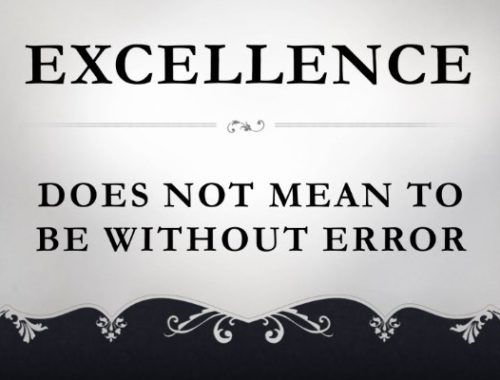
Do not lower journalism standards by cutting university courses
At the end of August 2017 students in Journalism program at University of Toronto Scarborough (UTSC) received a survey from Kenzie Burchell, Ph.D., Assistant Professor of Media, Journalism and Digital Cultures. The survey asked for opinion on changes being proposed to the program in third and fourth years of studies. These included: removing a mandatory Minor component, updating certain courses and compressing the third year of studies, which takes place at Centennial College. All these changes are to be implemented “to better align with contemporary industry changes”, said the survey. After completing it, I was left with an impression that UTSC is trying to spend less time on training future journalists in a narrowed skill set. This, in turn, might make it harder for UTSC Journalism graduates to find journalistic jobs in the future.
The currently mandatory Minor component lets the students explore areas of interest other than their major education stream. By pairing their courses with, say, Political Science, International Development, Public Policy and Governance or Media/New Media Studies, students can learn skills beyond journalism and therefore can better navigate out in the field.
It is true that without a Minor, students would finish the program sooner and their tuition cost would be significantly lower. Yet I think that money or shorter study time should never be deciding factors for any changes in University programs. Pursuing a Minor creates more opportunities for graduates to get a job beyond journalism. If this component is cancelled, then the future UTSC journalists will turn out undertrained and will be left to rely just on journalism-related skills, which are easy to acquire without a degree they’re paying thousands of dollars for. Cutting a minor, therefore, limits career options of UTSC journalism graduates.
What’s more, UTSC proposed to cut their teaching of necessary skills by updating certain courses. This will limit future graduates’ career options even more. If these changes are approved, courses like JOUB14H3 Multiplatform Design would be updated – or, in other words, would teach how to do only online journalism. Initially, JOUB14H3 provided “an introduction to the principles of design [and aimed] to help students develop the skills they will need to package and present news and feature content across print and digital platforms.” Although “digital” is indeed the future for journalism, that does not mean that print journalism skills will become obsolete. Jeffrey Dvorkin – former Managing Editor of CBC News, former NPR news ombudsman and my current journalism professor – always said that “digital” is just another platform, like TV or radio. Future journalists have to know how to navigate all of these, not just the online. Besides, the rising cohort of “citizen” “journalists” successfully proves that online skills are easy to acquire without a journalism degree. I think that by focusing just on online-related skills, the most prestigious University in Canada would significantly lower its standards.
UTSC also plans to remove a course titled “JOUB03H3 Personal Branding and Freelancing”, which is an “introduction to developing and selling quality magazine stories for multiplatform publication.” The university plans to incorporate it into “Business of Journalism”, with a course description that reads “Students will dissect models of distribution and engagement, discussing trends, predictions and future opportunities in media inside and outside the traditional newsroom”. This course fully prepares journalism students for future career failures in media, instead of dedicating 12 weeks and thousands of dollars to preparing them for success in other industries with skill sets based on media. Removing JOUB03H3 Personal Branding and Freelancing reduces the students’ chance to learn how to freelance if they are unable to find a stable job in media (which will most likely happen given the University cuts its Minor requirement for the program).
It seems that UTSC is trying to keep up with the changing face of media by focusing on teaching online journalism and related skills (like video editing and creating podcasts). The problem is that anyone without a Journalism degree, but with a computer, time and resources can make a video or a podcast, edit it with professional software and upload it online – which is what nowadays so-called “citizen journalists” do. The Internet has become a platform that allows anyone to post anything and, I think, UTSC should focus on teaching us how to sift through the “fake news” and how to create true journalism, instead of teaching skills that anyone can learn in their free time. Old-school journalism principles will always apply to our work, no matter what new platform for spreading news emerges. These principles need to be taught to the journalism students, otherwise our mass media standards will suffer in the near future.
Kateryna Bandura for NP-UN, Toronto
This article first appeared in September 2017 issue of the New Pathway – Ukrainian News
Follow me on social media!You May Also Like

The good, the bad, the ugly side of media
August 11, 2018
Covering rape: What to look out for in time of #MeToo and #Time’sUp
August 2, 2018

